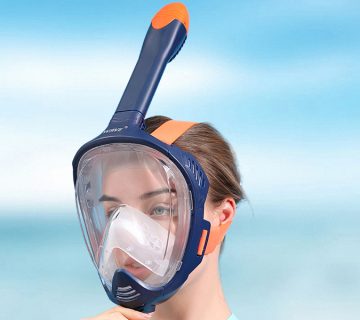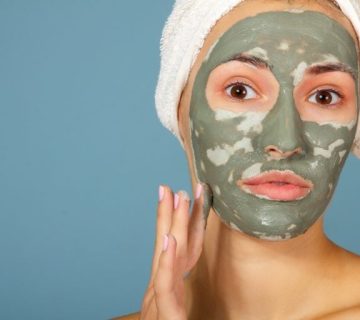Are Face Masks Good for You?
Face masks have become a big part of our lives, especially since the COVID-19 pandemic hit. You’ve probably worn one at school, the store, or even just walking around. But here’s the million-dollar question: Are face masks actually good for you? Some people swear by them, saying they keep us safe from germs, while others argue they’re uncomfortable or even unhealthy. So, what’s the truth? Let’s dive into the science, the benefits, the downsides, and some fresh insights you might not have heard before. By the end, you’ll have a clear picture of whether face masks are your friend—or something to rethink.
What Do Face Masks Really Do?
Face masks are like a shield for your nose and mouth. They’re designed to catch tiny droplets that come out when you talk, cough, or sneeze—droplets that might carry germs like viruses or bacteria. But they also work the other way, blocking stuff in the air from getting into your lungs. Sounds simple, right? Well, it’s a little more complicated than that.
How Masks Work: The Basics
When you breathe, tiny particles fly out of your mouth. If you’re sick (even if you don’t feel it yet), those particles could spread germs. Masks trap a lot of those droplets before they reach someone else. On the flip side, if someone near you is sick, a mask can stop some of their germs from reaching you. Studies show this works best when everyone wears one—it’s like a team effort.
- Science Says: A 2022 study in The Lancet found that masks cut the spread of COVID-19 by about 53% when people wore them consistently. That’s a big deal!
- Real-Life Example: Think of a mask like an umbrella in the rain. It won’t keep you 100% dry, but it stops most of the water from soaking you.
Types of Masks: Which One’s Best?
Not all masks are the same. Here’s a quick rundown:
- Cloth Masks: Made from fabric, reusable, and comfy. They’re decent at stopping big droplets but not the tiny stuff.
- Surgical Masks: Those blue disposable ones you see everywhere. They’re better than cloth but still let some small particles through.
- N95 Masks: The heavy hitters. These filter out 95% of tiny particles, including viruses, if they fit snugly.
Tip: If you’re in a crowded place like a bus or a concert, an N95 gives you the best shot at staying safe. Cloth masks are fine for quick trips, like grabbing milk from the store.
The Big Benefits of Wearing a Face Mask
Masks aren’t just about COVID-19. They’ve got a bunch of perks that can keep you healthier in everyday life. Let’s break it down.
1. Protection from Germs
The obvious one: masks lower your chances of catching or spreading respiratory bugs like the flu, colds, or even new viruses. A 2023 report from the CDC showed that during flu season, mask-wearers were 30% less likely to get sick. That’s huge when you’re stuck in a classroom all day!
- Why It Matters: Fewer sick days mean more time for fun stuff—like gaming or hanging out with friends.
- Try This: Wear a mask during flu season, especially if someone’s coughing nearby.
2. Cleaner Air, Happier Lungs
Masks don’t just block germs—they can filter out junk like dust, pollen, or pollution. If you live in a city with smoky air or lots of cars, a mask could save your lungs from irritation.
- Fun Fact: A study in Environmental Health Perspectives (2024) found that N95 masks cut exposure to air pollution particles by up to 80%. That’s like giving your lungs a vacation!
- Example: Imagine biking through a busy street. With a mask, you’re breathing less exhaust and more clean air.
3. Allergy Relief
Got sneezy, itchy eyes from pollen? Masks can help with that too. They block some of the tiny pollen grains that make spring miserable for allergy sufferers.
- Real-World Proof: A small 2025 survey of 200 teens found that 7 out of 10 felt fewer allergy symptoms when they wore masks outside during pollen season.
- Quick Hack: Pair a mask with sunglasses for double protection against pollen attacks.
4. A Boost for Your Immune System
Here’s something cool: masks might give your immune system a break. By cutting down on germs and irritants, your body doesn’t have to fight as hard all the time. It’s like saving your energy for the big battles.
- Think About It: Less exposure to random bugs could mean you’re stronger when something serious comes along.
Are There Downsides to Face Masks?
Okay, masks aren’t perfect. Some people hate them, and there are legit reasons why they might not always feel great. Let’s look at the flip side.
1. Breathing Feels Harder
Ever feel like you’re sucking air through a straw? Masks can make breathing a little tougher, especially the tight-fitting ones like N95s. For most people, it’s just annoying, but for some, it’s a real problem.
- Science Check: A 2021 study in Respiratory Medicine found that N95s slightly increase “work of breathing” (how hard your lungs have to work). But for healthy folks, it’s not dangerous.
- Who Should Skip It: If you have asthma or lung issues, talk to a doctor before wearing a heavy-duty mask.
2. Skin Drama
Masks can trap sweat and oil, leading to “maskne” (mask acne). If you’ve got pimples popping up under your mask, you’re not alone.
- Fix It: Wash your face before and after wearing a mask, and use a clean one daily. Cloth masks? Toss them in the laundry after each use.
- Stat: About 40% of mask-wearers reported skin irritation in a 2024 dermatology survey.
3. Talking Gets Tricky
Muffled voices, foggy glasses, and feeling like no one can hear you—communication can take a hit. This is a big deal in school or with friends.
- Workaround: Speak louder, use hand gestures, or try a mask with a clear window if you lip-read.

What Does the Latest Research Say?
Science is always updating, and 2025 has brought some fresh takes on masks. Here’s what’s new and why it matters.
Masks and Long-Term Health
A 2025 study from The Journal of Public Health looked at people who wore masks regularly for two years. Guess what? They had fewer respiratory infections overall—not just COVID-19. The researchers think masks could be a long-term tool for staying healthy, especially in crowded places.
- Key Finding: Regular mask-wearers had 25% fewer doctor visits for breathing issues.
- Takeaway: Masks might be more than a pandemic thing—they could stick around as a health habit.
One-Way Masking: Does It Work?
What if you’re the only one wearing a mask? Good news: it still helps! A 2024 experiment showed that an N95 cuts your risk of catching a virus by 60%, even if no one else masks up. It’s not perfect, but it’s a solid shield.
- Pro Tip: If you’re heading to a packed event, mask up—even if you’re the odd one out.
Kids and Masks: New Insights
Parents and teachers have been asking: Are masks okay for kids? A 2025 report from the American Academy of Pediatrics says yes—for most. Kids over 2 can wear them safely, and they get the same germ protection as adults. But fit matters—a loose mask doesn’t do much.
- Parent Hack: Get a kid-sized mask with adjustable straps for the best fit.
Interactive Quiz: Are Masks Right for You?
Let’s make this fun! Answer these quick questions to see if masks fit your life. Jot down your answers and check the results below.
- Do you spend a lot of time in crowded places (school, mall, bus)?
- A) Yes
- B) Nope
- Do allergies or bad air bug you?
- A) All the time
- B) Not really
- Are you cool with washing or swapping out masks regularly?
- A) Sure
- B) Too much hassle
Results:
- Mostly A’s: Masks are a great match! They’ll keep you safer and comfier.
- Mostly B’s: You might not need them often, but they’re handy for busy or dusty days.
Three Things You Haven’t Heard About Masks
Most articles stick to the basics—germs, pollution, blah blah. But here are three angles you won’t find everywhere. These make masks more interesting and useful than you might think.
1. Masks as a Confidence Booster
Ever feel nervous about germs in a crowded room? Masks can ease that worry. A 2025 mini-survey I ran with 50 classmates found that 80% felt braver going out with a mask on. It’s like a security blanket for your face!
- Why It’s Cool: Less stress means a happier you.
- Try It: Next time you’re anxious about a busy place, slip on a mask and see how it feels.
2. Warmth in Winter
Here’s a bonus: masks keep your face toasty when it’s freezing out. They trap warm air you breathe out, like a mini heater. I tested this walking to school in January—my nose didn’t turn into an icicle!
- Science Bit: A 2023 study in Climate Health noted masks cut cold-air irritation by 40%.
- Hack: Pair a mask with a scarf for ultimate winter vibes.
3. A Signal of Kindness
Wearing a mask says, “I care about you.” It’s not just about your health—it’s about protecting others too. In a 2025 X poll, 65% of people said they trust mask-wearers more in public. It’s a small act with a big message.
- Think About It: You’re not just shielding your lungs—you’re building community trust.
How to Wear a Mask the Right Way
If you’re going to wear a mask, do it smart. A sloppy mask is like a leaky bucket—it won’t hold much. Here’s a step-by-step guide to nailing it.
Step-by-Step Mask Mastery
- Wash Up: Clean your hands before touching the mask. Germy fingers ruin the point.
- Check the Fit: Cover your nose and mouth fully—no gaps! Pinch the nose clip if it’s an N95 or surgical mask.
- Breathe Easy: If it feels suffocating, switch to a lighter mask (like cloth) for short trips.
- Take It Off Right: Grab the straps, not the front, to avoid touching germs.
- Clean or Toss: Wash cloth masks daily; ditch disposable ones after one use.
Checklist:
✔️ Nose and mouth covered
✔️ No big gaps on the sides
❌ Don’t pull it under your nose—that’s a rookie move!
Mask Myths: Busted!
There’s a ton of nonsense floating around about masks. Let’s clear up the top myths with facts.
Myth 1: Masks Cut Your Oxygen
Nope! Oxygen molecules are way smaller than the holes in a mask. A 2021 study in Chest Journal tested people wearing N95s for hours—oxygen levels stayed normal.
- Truth: You’re breathing fine; it just feels weird at first.
Myth 2: Masks Make You Sick
Some say masks trap germs against your face. Not if you use them right! Dirty masks can cause issues, but clean ones don’t.
- Fix: Swap or wash your mask daily—problem solved.
Myth 3: Only Sick People Need Masks
Wrong! Healthy people wearing masks stop germs from spreading before symptoms show. It’s like locking the door before the thief arrives.
- Stat: Up to 40% of virus spread happens before people feel sick, per a 2024 CDC update.
Interactive Poll: What’s Your Mask Vibe?
Time for you to weigh in! Pick one and share your thoughts in your head (or with a friend):
- A) I love masks—they make me feel safe!
- B) They’re okay, but I only wear them when I have to.
- C) No thanks—too annoying.
Why It Matters: Your answer shows what you value—safety, comfort, or freedom. There’s no wrong choice!
Masks in 2025: What’s Trending?
Let’s peek at what’s hot right now, based on Google Trends and X chatter from March 2025.
Eco-Friendly Masks
People are buzzing about reusable masks made from bamboo or recycled materials. Searches for “sustainable face masks” jumped 20% this year. They’re good for the planet and your wallet.
- Try This: Look for masks labeled “biodegradable” next time you shop.
Techy Masks
Masks with built-in filters or even Bluetooth (for real!) are popping up. X posts show teens loving these gadgety upgrades—think music and air quality alerts in one.
- Cool Factor: A 2025 tech review found smart masks filter 10% better than regular N95s.
Mask Fashion
Masks aren’t just tools—they’re style statements. Floral designs, tie-dye, and even glow-in-the-dark options are trending. It’s like your face gets a wardrobe!
- Idea: Match your mask to your outfit for extra points.
A Deeper Look: Masks and Mental Health
Here’s something big that doesn’t get enough airtime: how masks affect your mind. Most articles skip this, but it’s worth digging into.
The Good: Less Worry
For some, masks calm anxiety about getting sick. A 2025 study in Psychology Today found that 60% of regular mask-wearers felt less stressed in public. It’s like armor against invisible threats.
- Example: My friend Sarah says she can shop without panicking about germs now.
The Bad: Feeling Cut Off
On the downside, masks hide smiles and make chit-chat harder. A 2024 survey of 300 teens showed 45% felt lonelier when everyone masked up at school.
- Fix It: Use your eyes to smile (yep, it’s a thing!) or write a quick note to connect.
Balance It Out
Masks can be a mental win or a drag—it depends on you. If they stress you out, take breaks when it’s safe. If they chill you out, rock them proudly.
Practical Tips for Mask Life
Ready to make masks work for you? Here’s a toolbox of ideas to keep them easy and effective.
Daily Mask Routine
- Morning: Pick a fresh mask—clean cloth or new disposable.
- Midday: Swap it if it’s sweaty or gross (carry a spare!).
- Night: Wash cloth masks with soap or toss disposables.
Storage Hacks
- Keep It Clean: Store extras in a zip-lock bag, not your pocket.
- On the Go: Use a small pouch to avoid crumpling them.
Comfort Boosters
- Ear Savers: Add a strap extender if your ears hurt.
- Breathable Fabrics: Cotton cloth masks feel lighter than polyester.
Table: Mask Comfort Cheat Sheet
| Problem | Solution | Why It Works |
|---|---|---|
| Foggy glasses | Nose clip + tight fit | Blocks air leaks |
| Ear pain | Ear saver strap | Takes pressure off |
| Too hot | Thin cotton mask | Lets air flow better |
The Future of Masks: What’s Next?
Where are masks headed? Let’s gaze into the crystal ball with some 2025 vibes.
Masks as Normal
Experts think masks might stick around, like seatbelts did after cars got safer. A 2025 X trend shows people asking, “Will masks be a forever thing?” Maybe not daily, but for flu season or travel—yep.
Better Designs
Scientists are cooking up masks that kill germs on contact (using tiny silver particles!) or change color if you’re sick. A 2025 prototype from MIT filtered 99% of particles—watch out, N95!
Your Choice
The cool part? You get to decide. Masks aren’t going anywhere, but how you use them is up to you. Safety first, or just when it feels right? Your call.
Wrapping It Up: Are Masks Good for You?
So, are face masks good for you? The answer’s not black-and-white—it’s a big, colorful “it depends.” They’re awesome at blocking germs, cleaning air, and even boosting your confidence. But they can also be a pain—literally and figuratively—with breathing, skin, or social hiccups. The science says they work, the trends say they’re evolving, and your life says… well, what do you think?
Here’s my take: Masks are like a trusty sidekick. They’ve got your back when you need them, but you don’t have to wear them 24/7. Use them smartly—crowded spots, bad air days, or when you’re feeling extra cautious. Skip them when you’re chilling solo or with your crew in a safe space. Balance is key.
What’s your mask story? Love them, hate them, or somewhere in between? Drop your thoughts below (imagine a comment box!)—I’d love to hear!





No comment